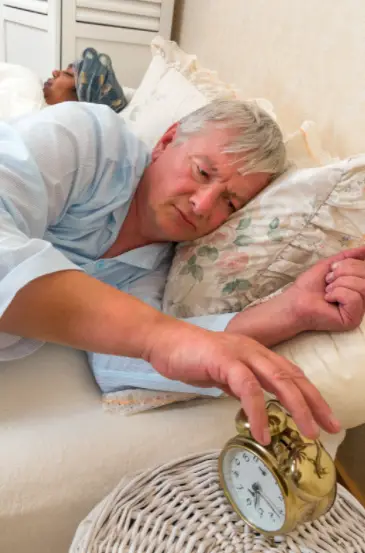
When it comes to indoor air, does lack of oxygen make you sleepy? Science says it does, but it’s not the kind of sleepiness that you would think about! Fatigue will arise if you have low oxygen levels, such as when you can’t breathe properly due to bad odor or smoke indoors.
Oxygen is greatly needed by the body to survive. It’s amazing to know how much air do we breathe per day, but there can be hindrances to that.
With the body low on oxygen, we bec
ome lethargic and somewhat sleepy, but we’re somewhat losing consciousness. That’s also why people faint in the middle of a hot, summer day.
We’re here to help you breathe easier – if you believe your oxygen levels at home are insufficient, causing you to f
eel tired and fatigued, we have a couple of solutions below.
How can you raise your oxygen level?
If you want to raise the oxygen level indoors, here are a couple of suggestions:
1. Ensure you have access to fresh air
By fresh air, we mean clean and healthy air to breathe, such as air from the outside. Ventilate as much as you can, but don’t compromise your lungs with dirty air! For that, you will need a device to clean the air in the home.
Not everyone lives in the countryside and has access to fresh air, which is why we advise you to maintain clean indoors as well. It will help to maintain the air for you to breathe, even when it’s polluted outdoors.
2. Get hydr
ated
Staying hydrated with H2O will help with oxygen levels. That’s because drinking sufficient water each day will help with the distribution of oxygen in our bodies. This w
ill also boost the process of carbon dioxide and oxygen exchange.
3. Boost your iron deficiency
There’s also a chance that you may have an iron deficiency if you lack oxygen in your blood. Foods that are rich in iron are the following:
- eggs
- legumes
- seafood
- broccoli
- spinach
- apricot
- kale
- apples
- red meat
- pasta
- poultry
- cereals
If you need an extra boost, you can also check with your GP for recommendations on an iron supplement. Most iron supplements can be bought from the pharmacy as an over-the-counter medicine.
What iron does in your body is that
it boosts our red blood cells so they can easily transport oxygen throughout the body. Iron deficiency usually has tiredness as a common symptom.
4. Get plenty amounts of exercise
To raise your oxygen levels, what you
can do is train yourself to have a higher VO2 max, which also pertains to your endurance. Oftentimes, we can’t breathe easy because we’re lacking training such as running or other physical activity.
Once you’ve gotten into physical activity, even a simple jog, you won’t quickly grasp for air like you would if you were still a couch potato. Exercise helps improve our oxygen circulation.
What are the symptoms of not getting enough oxygen?
So, how do you know if you aren’t getting enough oxygen? Here are some of the signs and symptoms to look for. If you experience them then it’s likely that you’re missing out on oxygen levels:

Lack of oxygen manifests itself not just in breathing symptoms, but also in other parts of the body. If you experience any of these often, you may want to try our above-mentioned tips so that you’ll breathe easier, especially if you live in an urban area where fresh air isn’t always an option.

How can I get more oxygen while sleeping?
Most often, people complain about how they can’t sleep due to the inability to breathe properly. Here are some tips on getting more oxygen during bedtime:
- Ensure fresh air when you sleep at night. Fresh air can be attained once you’ve invested in an air-cleaning device. But do air purifiers improve health? It does – and keeping your indoor air fresh and clean to breathe is one of its key features.
- Change your sleeping position to sideways. Side sleeping has many benefits. Aside from decreasing your chances of snoring (and disturbing people with it), side sleeping reduces the stress on the lungs as compared with back sleeping. This is why when you get a nightmare or sleep paralysis, you tend to wake up from a back sleeping position.
- The reason for most nightmares is that your body is signaling you that something is wrong, causing you to have frightening delusions to wake you up. Once you start sleeping sideways, you’ll have more access to oxygen while you are asleep.
- Get enough exercise during the day. As mentioned above, exercise will help a lot in terms of oxygen intake.
- Because we breathe faster when we perform physical activity, it signals our brain and body to work on improving the speed of our oxygen and carbon dioxide exchange process. We’re also less likely to get exhausted easily once we start doing physical activities regularly.
- Go for deep breaths. When you perform deep breathing, it helps you maximize your oxygen intake. It ensures that you have more oxygen that goes into your system. However, as mentioned above, it’s always best to breathe fresh air rather than pollution.
- If you’ve been feeling stressed, take a break. Anxiety and depression could cause you to not breathe properly. Go and do your favorite pastimes or other calm activities if you feel quite burnt out. This will help regulate your breathing.
- Lessen alcohol intake before bedtime. Did you know that alcohol worsens your oxygen intake when you sleep? That’s because it sedates your muscles too much, causing your airways to not function properly in terms of delivering oxygen throughout the body or receiving them from the outside world.
Conclusion
To wrap it up, a lack of oxygen can make you feel tired or somewhat sleepy. Thankfully, there are many ways for you to bounce back and improve your breathing space with a few healthy lifestyle tweaks. We hope you found our article helpful!



